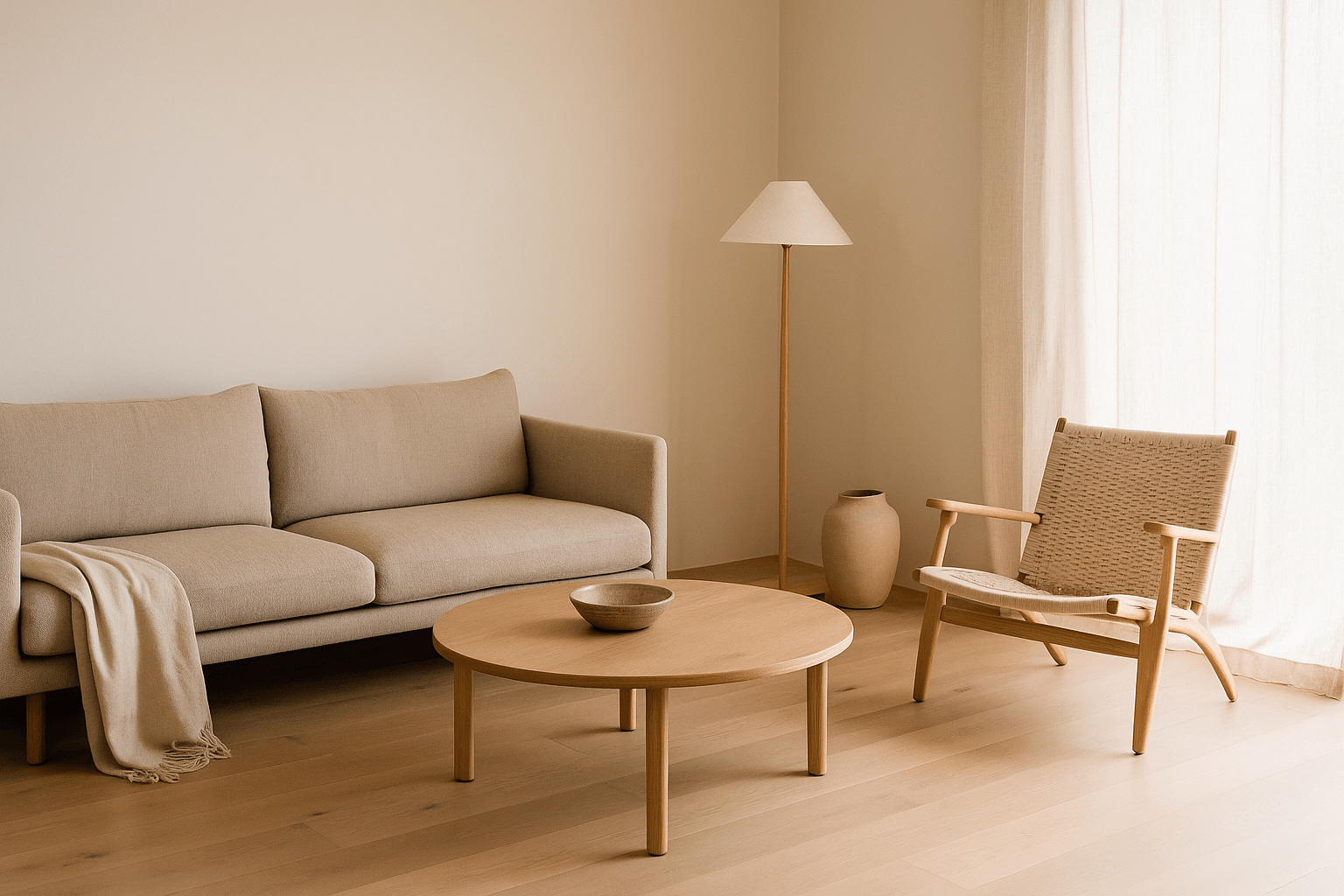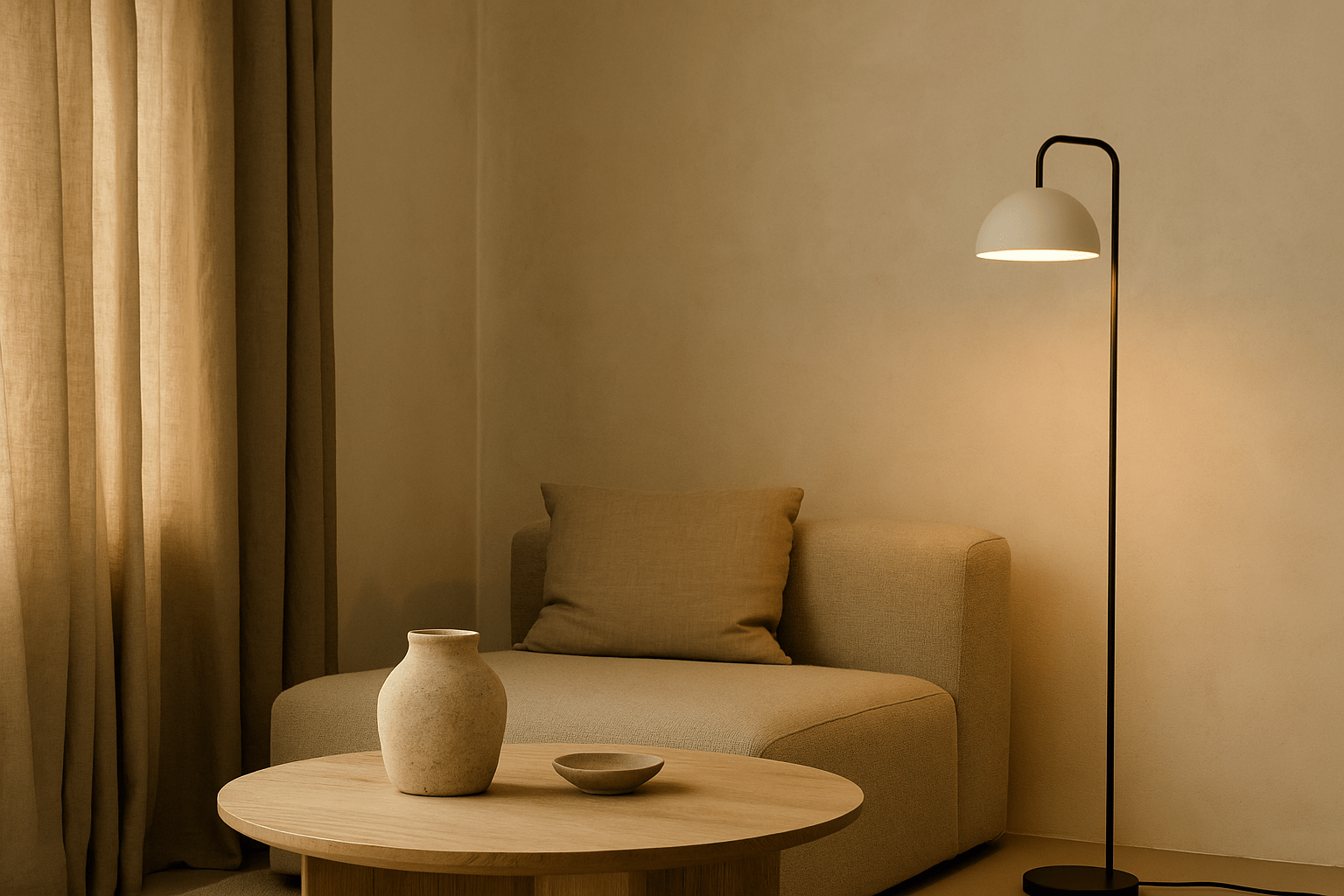Light Does More Than Illuminate
In minimalist design, lighting isn’t just functional.
It becomes a daily ritual — shaping mood, pace, and presence.
Intentional lighting is about designing how you experience your space from morning to evening.
It’s subtle. It’s slow. And it’s deeply human.
1. Morning: Awakening with Gentle Light
Start the day with light that invites wakefulness, not shock.
Tips:
-
Use sheer curtains to diffuse natural morning light
-
Position mirrors to reflect soft daylight deeper into the space
-
Avoid harsh overhead lights — opt for soft table lamps to ease into the day
This creates a mindful morning rhythm, aligned with how light naturally rises.
2. Daytime: Light That Supports Focus
During work or active hours, lighting should be clear but calm.
-
Use adjustable task lighting for focused activities
-
Maintain a balance of natural and artificial light to avoid strain
-
Keep tones neutral and consistent to minimize distraction
Daylight rhythms subtly guide productivity without overwhelming the senses.
3. Evening: Winding Down with Warm Light
Evening light should signal the body and mind to slow down.
-
Switch to warm bulbs (2700K or less)
-
Layer multiple low-intensity lights instead of one bright source
-
Introduce accent lighting — wall sconces, floor lamps, soft-glow pendants
This transition supports natural circadian rhythms and emotional calm.
4. Special Moments: Lighting as a Mood Setter
Lighting can transform ordinary moments into rituals of care.
-
A single lit candle during quiet reading
-
Dimmed wall lights during meals
-
A sculptural lamp creating shadow play in a calm corner
These small lighting choices make everyday activities feel intentional, elevating simple routines.
5. Designing Spaces That Breathe with Light
Minimalist homes aren’t about stark brightness.
They’re about atmosphere — light that enhances stillness, not overwhelms it.
Use light to:
-
Highlight texture (linen, wood grain, stone)
-
Create zones of rest and reflection
-
Shape the emotional landscape of your home
In minimalism, light becomes the final layer of design — invisible, but deeply felt.
Final Thought
Intentional lighting is more than design.
It’s a daily ritual that supports how you live, feel, and rest.
Soft. Layered. Evolving with time.
Design your lighting not just for visibility, but for presence.
















